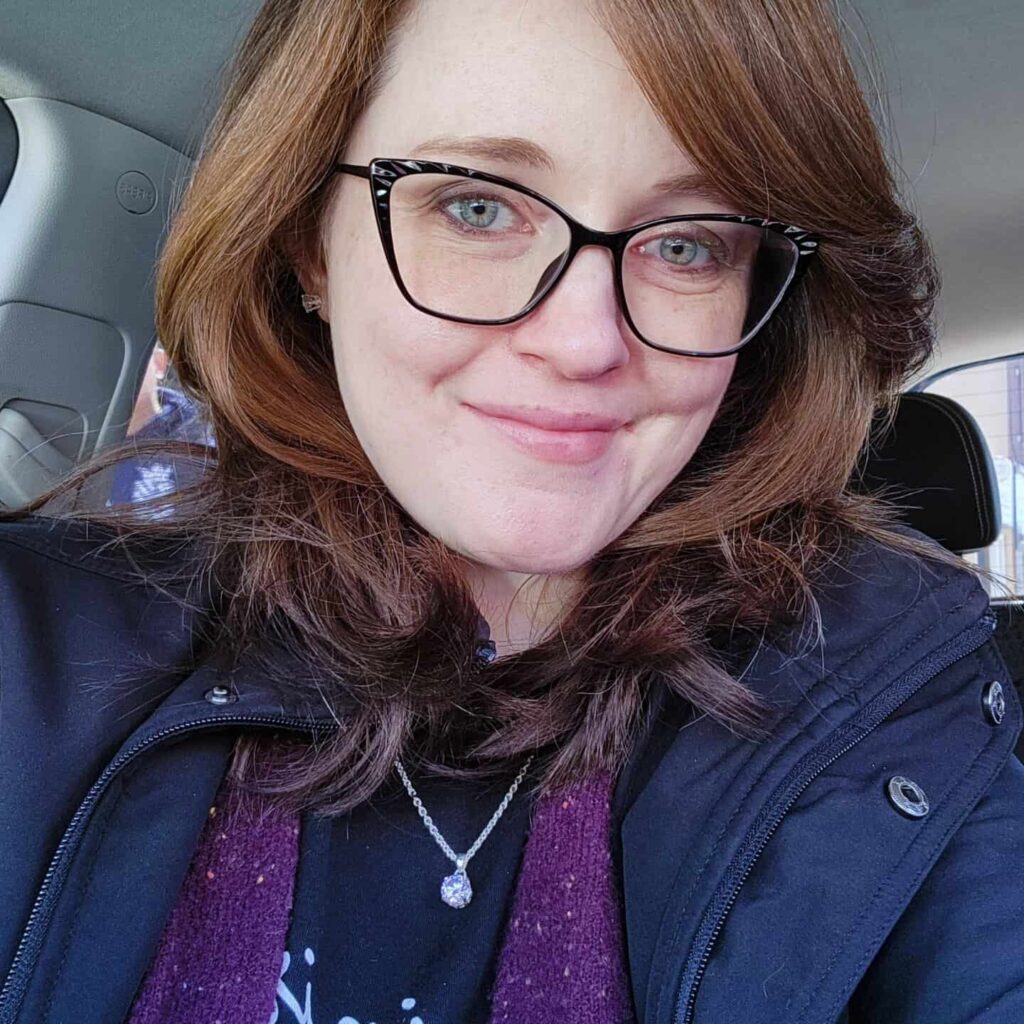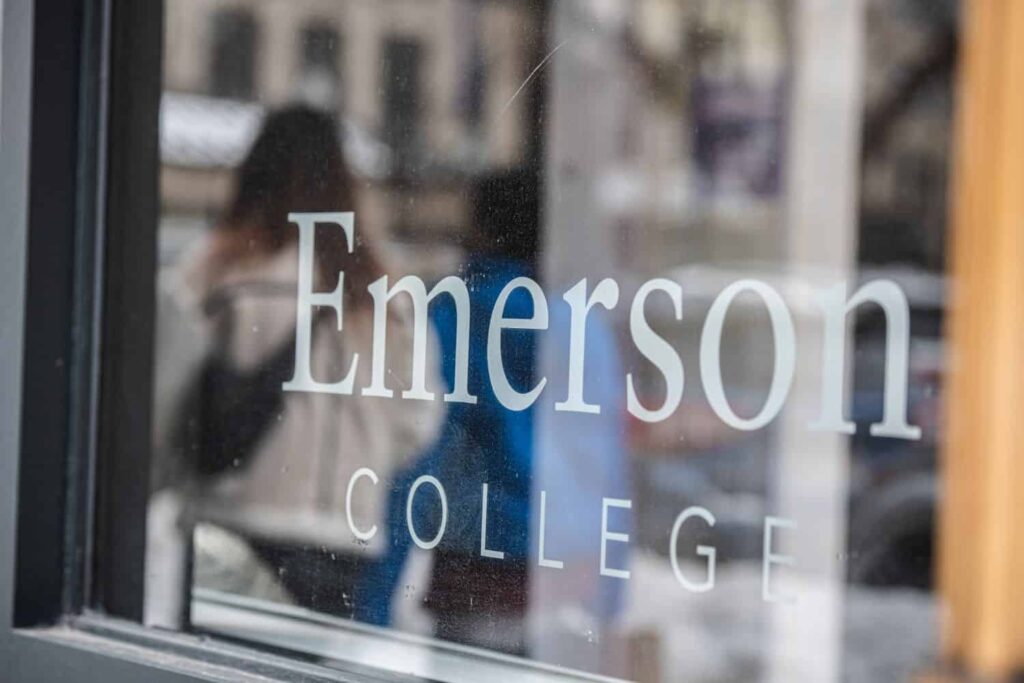
If you’re researching graduate programs, you may have noticed that many schools have different research and professional opportunities. At Emerson, our graduate programs offer a variety of high-quality opportunities to help students get the most out of graduate school. Today we’re highlighting how Emerson’s graduate and undergraduate students collaborated on a project with the Boston Globe and Emerson Polling. We’ll hear from Laurie Hilburn, a graduate student who was deeply involved in this project and wrote the project’s cover article for the Boston Globe Magazine.
How did the Boston Globe and Emerson Polling project get started?
Laurie explains that each year, Emerson’s Associate Professor and Interim Graduate Program Director Susanne Althoff offers a course called Writing for the Boston Globe. In this course, students learn from writers and staff members at the Globe. The course’s main assignment is to pitch an idea to the Globe. From there, students work with the staff to write and publish a piece in Globe Magazine.
This year, Professor Althoff partnered with Emerson Polling and the Boston Globe. “The Polling project was new to the course,” Laurie explains. “It made an already unique course even more specialized.” In addition to meeting guest lecturers from different departments of the Globe, the students also got to explore survey research.
With support from the Emerson Polling team, Laurie and her classmates surveyed 6,000 New England residents about their opinions on higher education. Once the results came back, the students worked with the Boston Globe and Emerson Polling to analyze the survey data and write about the results for the Globe.
How did you create the survey?
To decide what topic to explore with the survey, Laurie and her classmates read recent articles about education in the Globe and other New England news sources. “We started seeing a theme,” Laurie explains. “New England is the place where higher education began in the US. It’s supposed to be the seat of higher education, but people here are frustrated and tired of all the barriers to higher education.”
After noticing this trend of disillusionment in conversations about higher education, the class met with Francis Storrs, Editor of the Sunday Globe. Francis and the students wanted to learn more about New Englanders’ perspectives on higher education and how those perspectives have shifted over time.
Throughout the semester, Camille Mumford and Spencer Kimball from Emerson Polling gave the class a crash course on how to develop a survey. The students would present questions they wanted answered through the survey, and Camille and Spencer helped format those questions into a polling-friendly format. For example, the students and the Globe wanted to know how people with different political affiliations felt about higher education. They also wanted to explore how factors such as education level, gender identity, age, and level of employment might impact people’s feelings about higher education.
After the students crafted a list of questions with the Boston Globe and Emerson Polling, the Emerson Polling team sent out the survey in February 2024.
What was it like analyzing survey data?
When survey responses came back in March, Laurie was surprised by how much she enjoyed analyzing the data. “I usually don’t like numbers, but this was fascinating to me!” she says.
The Emerson Polling team taught the students about some foundational statistical skills. Laurie and her classmates learned about strategies like cross-tabulation to make in-depth observations about the survey data. Laurie soon realized that she enjoyed finding patterns and trends within the data.

As the students sifted through all the polling data, they worked with staff at the Globe to pitch some ideas for what to write about the survey. Laurie had the task of writing the cover article introducing the project to the public. Three of Laurie’s classmates wrote articles about specific trends in the survey data. Julia DaSilva-Novotny wrote an article about college debt, Audrey Silalahi about college degrees for jobs, and Angelina Parrillo about conservatives in higher education. “With our powers combined, and everyone supporting us at Emerson Polling and the Boston Globe, our articles came out well.”
What was it like writing for the Boston Globe?
“I’ve never written for a magazine before, and it was a very fun learning process,” Laurie explains. At first, it was challenging to write about the project in a digestible format. Laurie recalls writing her first draft in an academic tone and having to modify her piece for a magazine format. “I had to learn how to write in an accessible voice while also including some of our survey findings,” she adds.
As part of her piece, Laurie interviewed several experts about higher education. She spoke with Lawrence Schall, the New England Commissioner of Higher Education, Julie Reuben, an Academic Historian at Harvard, and Michael Poliakoff, President of the American Council of Trustees and Alumni. Interviewing experts was intimidating at first, but Laurie says it was another positive learning experience. “I learned how to hold my own and be more of an active listener during interviews.”
How will this experience help you in your professional journey?
“Getting a byline in the Boston Globe is huge!” Laurie says. Having her name attached to such a distinguished publication will help her network within the publishing and writing industry.

Working with people like Francis Storrs at the Globe and interviewing field experts has also been a networking opportunity. “I want to keep my name in people’s minds,” she says. Over the summer, Laurie plans to pitch some short-form pieces to the Globe. She’s hoping the connections she’s formed with the Globe staff will help her chances of being published.
In addition to professional connections, Laurie’s experience in this course has taught her some valuable skills. She now feels more confident writing a strong pitch for a magazine or publisher. Writing for the Globe has also given Laurie experience in writing for different audiences. She now has more practice molding her writing style to the publication’s needs, which is a valuable and marketable skill.
What’s next for you?
Laurie plans to graduate from Emerson’s Publishing and Writing MA program in December 2024. This transition will be bittersweet for her. Laurie lives with a disability and recalls finding Emerson College at a pivotal time while growing up with chronic health problems. “I was home a lot from school and unsure what the future would look like. During that time, I started reading Ralph Waldo Emerson’s work, which became very important to me.”
Once, Laurie googled “Emerson,” hoping to find one of her favorite quotes. When Emerson College popped up, she was thrilled to find a school with the same name as her favorite author. From that point on, Laurie’s dream was to attend Emerson College.
While Laurie later realized that Emerson was not named after the poet, Laurie chose to attend Emerson’s Publishing and Writing MA because of the program’s broad scope. “I knew I wanted to work in publishing, but I wasn’t sure exactly which part of publishing,” Laurie explains. “I wanted a program that would give me a wide set of transferable skills, and Emerson’s program offered that.”
Now that she is nearing the end of her graduate studies, Laurie reflects that Emerson has helped her become a “jack of all trades” in publishing skills. While she now has the skills to pursue any area of publishing, Laurie hopes to find work as a literary publisher or editor. Eventually, she would like to pursue a PhD studying feminism and women’s literature. Laurie also hopes to become a professor and publish a book of her own.

How can people keep up with your work?
To keep up with Laurie’s work in the writing and publishing world, be sure to check out her portfolio and follow her on LinkedIn.
We hope this feature has given you a glimpse of the kinds of opportunities available to Emerson graduate students. For more information about our graduate programs, schedule a call with one of our admissions counselors today.


Leave a Reply